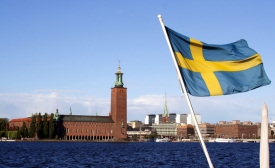baltics
Estonia has carved out a niche as a startup hub and a friendly environment for foreign businesses. Its biggest innovation, however, lies in e-government. Citizens of this tiny Baltic nation can conduct almost every encounter with the state online. [...] These achievements have made e-government a potent source of soft power for Estonia.
The first initiative for a summer democracy festival on a remote Baltic island dates back to legendary Swedish Prime Minister Olof Palme. Fifty years and a social media revolution later, assembly democracy is great again – at least for a few days in summer across Scandinavia.

Russia's strategy toward Sweden blurs the line between public diplomacy and covert operations.
Moscow is waging a highly effective information war in Estonia, Latvia and Lithuania with its “Russia Today” television broadcasts in their national languages, a war that the West must respond with its own efforts, according to Elina Lange-Ionatamishvili, a NATO specialist on counter-propaganda.
Latvia is joining Lithuania in banning Russian state television broadcasts because it found that several programs about the Ukraine crisis were tendentious and not in the Baltic nation’s security interests.
The Swedish media in the Baltic States, not being aware of it, often support the so-called soft power and do not promote the strengthening of European values in the Baltics, Defense Minister Artis Pabriks (Unity) emphasized during the "Security around Baltic 2013" conference in Stockholm yesterday, informs LETA.







